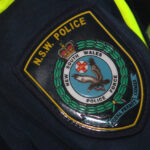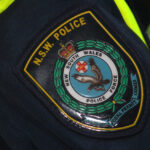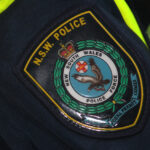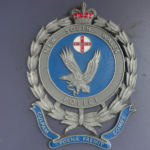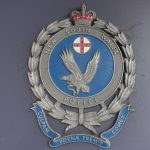Criminal Defence Lawyers to Get Better Protections Against Harassment, Intimidation and Reprisals

New laws have been introduced to New South Wales Parliament which will give defence lawyers similar protections to those that prosecutors, magistrates, judges, complainants, witnesses and jurors already have in our state.
Introduced to parliament on 19 October 2022, the Crimes Amendment (Protection of Criminal Defence Lawyers) Bill 2022 will amend two offences against public justice contained in the Crimes Act 1900 – being ‘threatening or intimidating judges, witnesses jurors or public justice officials’ under section 322 and engaging in ‘reprisals against judges, withesses, jurors or public justice officials’ under section 326 – to also make it an offence to engage in such conduct against an Australian legal practitioner who is acting for a defendant in a criminal matter or in connection with criminal proceedings, if this is done without a reasonable excuse.
The proposed changes come 18 months after an investigation by the state’s police watchdog, the Law Enforcement Conduct Commission, found that New South Wales police officers harassed and intimidated a lawyer to the point he could not represent his client to the best of his abilities.
Police threaten, harass and intimidate lawyer
The LECC’s 62-page report, titled ‘Operation Monza’, was furnished to New South Wales Parliament on 26 March 2021 and detailed the actions officers from Strike Force Raptor who engaged in the deliberate targeting, harassment and intimidation of a practising New South Wales solicitor with a view to undermining his ability to properly represent his client in court.
The report detailed the conduct of the specialist officers in a regional town in Norther New South Wales on 28 and 29 May 2019.
The conduct
The 28 May 2019 marked the first day of a scheduled hearing of the lawyer’s client over criminal charges.
Police officers had requested that its officers appear at the regional courthouse via audio-visual link, but the lawyer did not consent to the request and the court ultimately required the officers to attend in person.
On the night of 27 May 2019, a group of Raptor officers were staying in a hotel in advance of the next day’s court attendance, when their commanding officer ordered a constable and a senior constable to target the solicitor the following morning, in an effort to ensure he didn’t “make it to court”.
The lawyer first saw the two officers drive past his house at 6.30am the next morning.
The pair then then followed the lawyer’s car to a tyre store, where they approached him for allegedly not having indicated out of his driveway onto the road. The officers found the lawyer had forgotten his driver licence at home.
The officers then followed him towards his home, stopped him again to check on the roadworthiness of his case and issued him with a defect notice.
The lawyer then decided to take a taxi to work, but noticed that when he was in the cab, the officers were tailing him once again.
He arrived at his office and his client also arrived there a short time thereafter. The client advised his lawyer that police were doing laps of the car park outside. The lawyer went to look and saw the officers sitting on the bonnet of their car staring at him.
The lawyer called local police, who advised him they could not do anything about the conduct.
The lawyer then attended court as required and advised the magistrate about the conduct. The magistrate noted the lawyer was clearly “shaken up” and ordered the matter to be adjourned until the next morning.
The lawyer then attempted to leave the courthouse, only to see a large group of Raptor officers gathered out the front.
He re-entered the courthouse and the magistrate allowed him to leave through a discrete exit.
Unable to defend the case
Well-aware of Strike Force Raptor’s appalling track record of threats, harassment, abuse and even brutality towards those they choose to target, the lawyer met his client the next morning at his office where he advised of his intentions to withdraw from the case.
He left the office to attend court in order to inform the magistrate of his intentions, only to see officers in the carpark attaching a noise control notice to his motorcycle.
Conduct condemned
At the time of releasing the LECC’s findings, Integrity Commissioner Lea Drake described the conduct of the police as ‘disgraceful’, finding that a senior Strike Force Raptor officer had ordered two subordinates to ‘target, interact and harass’ the lawyer so that he could not make it to court.
‘They harassed and intimidated [the lawyer] to such an extent that he could not represent [his client] to the best of his abilities’, the Commissioner stated, which amounted to ‘serious misconduct’.
Also at the time, a spokesman for NSW Police responded to the LECC’s findings, saying they had been ‘noted’ and that the report’s contents will be ‘considered’.
Officers remain on the force
One might expect that such ‘disgraceful’ conduct would attract a severe sanction, such as termination or, at the very least, suspension without pay and additional training.
To the ire of many including New South Wales Law Society President, Juliana Warner, the sanction ultimately imposed on each of the officers was a ‘warning’, with no conditions attached.
Each of the officers remain on Strike Force Raptor to this day.
Lack of Police accountability
As we have seen time and again in New South Wales, police are rarely held accountable for their actions, even in situations of clear wrongdoing.
In the case of Strike Force Raptor, there have long been concerns from the community about the vigilante manner in way this particular unit operates, and has been operating with impunity for many years.
Strike Force Raptor is a specialist policing unit that was set up in 2009, to focus specifically on the criminal activities of motorcycle gangs. It has built a reputation on its aggressive and sometimes unorthodox policing strategies, but the actions of the officers on that morning effectively amounted to what could be considered an attempt to pervert the course of justice, particularly given that the lawyer felt so intimidated he resigned from the case, leaving his client to find alternative representation.
The incident highlighted a significant gap in the law, which previously did not offer the same protection to criminal defence lawyers as it does to witnesses, jurors, police, and prosecutors.
The new laws will change that, making it clear that conduct that amounts to harassment, bullying or intimidation can be considered a crime.
The role of defence lawyers
Defence lawyers play a crucial role in the justice system.
In Australia, the fundamental rule of law is that a person is innocent of the charge brought against them until and unless proven in a court of law to be guilty.
Criminal defence lawyers are there as a safeguard and counterbalance to the might of the state – which has almost unlimited resources to prosecute criminal cases.
These lawyers represent the interests of accused persons – advising them in relation to the law, their options and the best course ahead, protecting them from unscrupulous conduct by police and prosecutors, scrutinising prosecution ‘evidence’, formulating and implementing defence strategies, putting the prosecution to proof and working within the confines of the law to secure optimal outcomes for their clients.
Everyone is entitled to legal representation whatever they may be accused of – representation that is unaffected by bullying and harassment by gun wielding thugs such as the officers from Strike Force Raptor, who have been allowed to act above the law with impunity for far too long.



